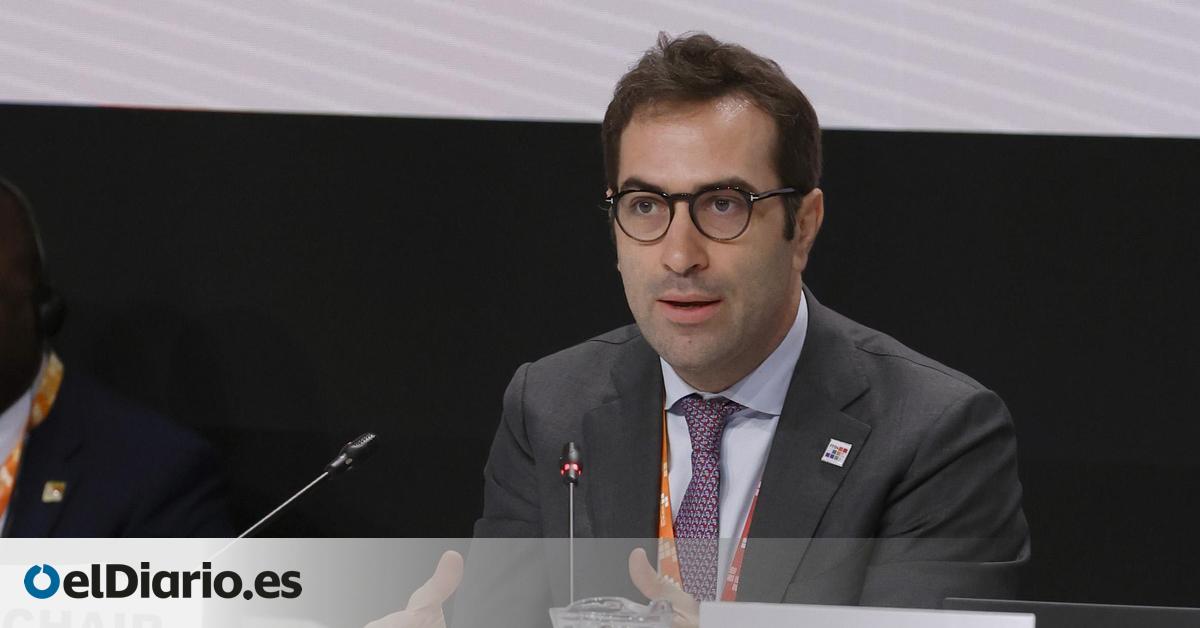
Carlos Body arrives on Brussels this Monday without almost probabilities of being elected president of the Eurogroup, but the Minister of Economy decided to step forward and apply to lead that agency, which in recent years has lost bellows, and that is responsible for guiding the economic policy of the euro zone. The current president, Paschal Donohoe, starts as a favorite by having the support of his co -religionists of the European popular family, which has enormous weight in the EU governments. The body path has become even more steep at the rivalry of the Lithuanian minister, Rimantas Šadžius, also a socialist, and with the instability of the Government of Pedro Sánchez, which is no secret to the rest of European countries.
The wind blows in favor of the Irishman, who aspires to repeat a third term, as recognized by all the sources consulted. Donohoe won the then economic vice president, Nadia Calviño, in 2020. In a first vote, she stayed with nine of the eleven votes she needed and, in the second, with the withdrawal of the Luxembourg candidate, she fell in front of the Irish. On this occasion, only with the right -wing governments in the Eurogroup Donohoe would exceed the eleven votes needed to be elected president of the agency.
In total, the right or ultra -right leads the thirteen governments of the twenty countries of the euro zone. Two others (France and Estonia) are in the hands of the liberals. Although some of these countries are not captained by the popular family, there is not much appetite of governments such as that of the Netherlands of promoting Spain, which has an antagonistic position in economic matters. The Government of Pedro Sánchez, for example, vehemently defends the issuance of joint debt to face EU challenges, such as military spending, and clashes fully with the ‘frugals’ and supporters of fiscal orthodoxy. Holland, Malta, Luxembourg and Cyprus were with Donohoe five years ago, and in that case, the ideological tuning norm also did not operate, since the Maltese government was (and is) socialist.
Body, therefore, also does not have advantage with many of the southern countries, which could traditionally have aligned with Spain. No one expects the Italian ultra -right Giorgia Meloni to do a ‘favor’ to the Executive of Pedro Sánchez. Nor does it seem that Greece will position himself with body in front of his Irish colleague, with which they share political affiliation.
Nor is it guaranteed that governments led by the right act as a granitic block, because the geographical component also comes into play. For example, Portugal historically aligns with Spain. And there are coalition governments, such as German or Cypriot, whose economy wallets fall into social democrats. Giving body support could therefore be a collegiate decision of the Government, the Prime Minister or the Minister of Economy. There he would have a certain margin, but it is not decisive to tip the balance in his favor.
In that sense, the rivalry with another socialist minister, the Lithuanian Rimantas Šadžius, also subtracts options, because the few socialists at the table can be divided. In fact, social democrats have the campaign very limited precisely by that internal competition. However, Šadžius can start votes from Eastern Europe to the detriment, fundamentally, from Donohoe.
A diplomatic source points to two other factors of body weakness: the recipes of Spain for the great economic challenges of the EU, which collide largely with the drift of right of the continent, with respect to military expenditure, the common debt to finance it, etc., as well as the instability of the Sánchez government, which nobody is alien. The Presidency of the Eurogroup has a two and a half years and the Minister of Economy has to hold at a time when Spain is aimed at its third budget extension and coalition partners have given a kind of ultimatum.
Another of the weak points is that Spain already has an important representation in European positions with the vice president of the Teresa Ribera Commission; Nadia Calviño at the head of the European Investment Bank, and Luis de Guindos as Vice President of the ECB. In fact, the latter struggled without success at the time to preside over the Eurogroup. Some sources see in the body movement an attempt to position themselves in the EU for the future.
In their team they ensure that none of these factors has to do with the candidacy: neither the positions that Spain already has, nor the geographical balances, nor the ideological affinities. “In contacts we focus on the Eurogroup and its program,” they say in the Ministry of Economy. “The time has come to go from the debate to action,” says body in his motivation letter, to try to convince critical countries with the immobilism of the current president.
“I appreciate the support I am receiving from the colleagues,” Donohoe said upon his arrival at the Eurogroup meeting in Luxembourg in June. For their part, in the body team they ensure that his candidacy has had “a good reception that invites optimism.” This Monday the 20 Economy Ministers of the euro zone will write the name of their favorite on paper and the services of the EU council will count how many have received each and will communicate it individually. Ministry sources point to the possibility that the candidate who has less support withdraw his candidacy, as happened in 2020 with the Luxembourg, and that the fight is between two. The vote is repeated until one of the applicants achieves the simple majority of the votes.
Source: www.eldiario.es

